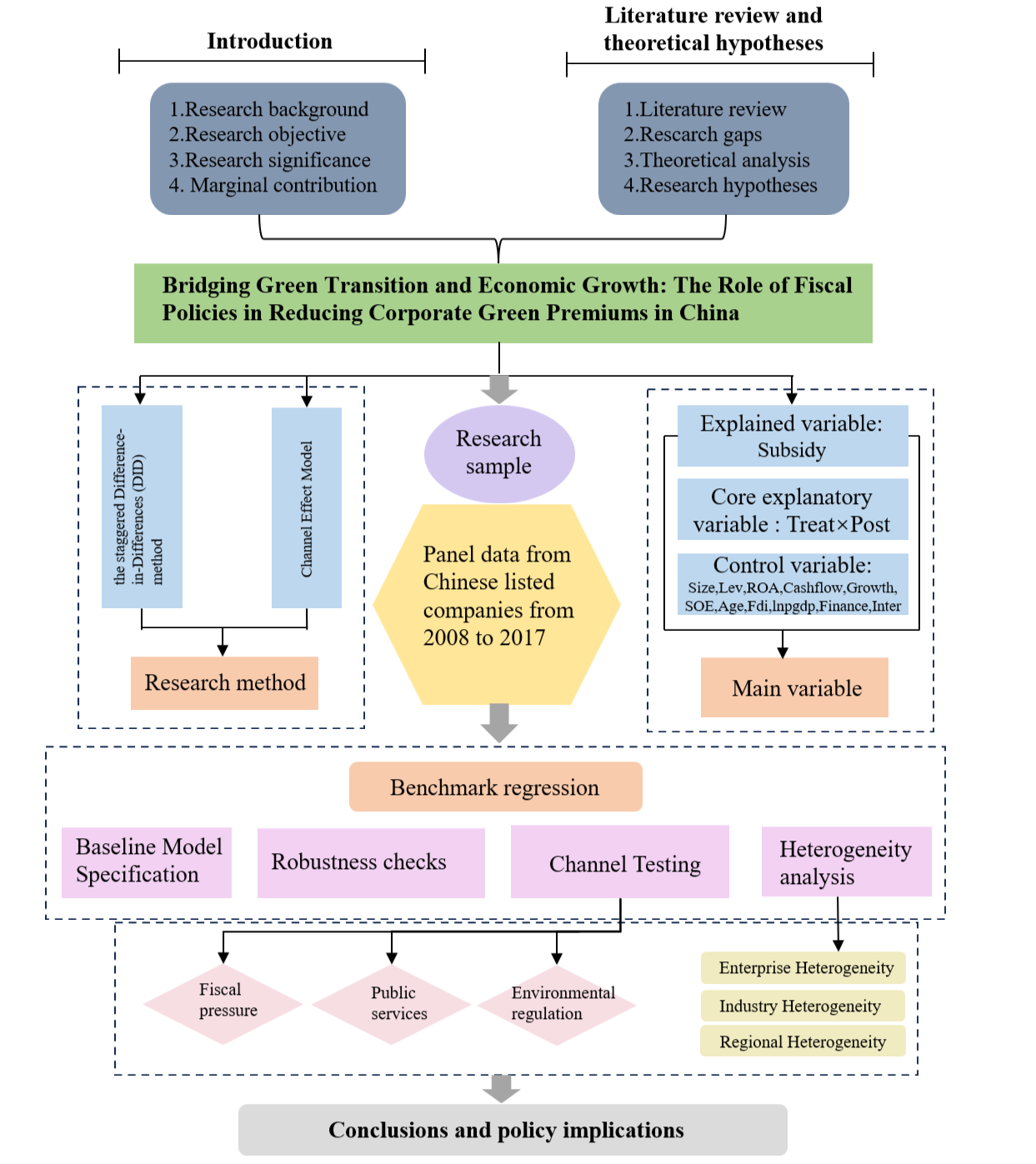
This study investigates the compensation mechanism for green premiums in high-carbon industries within emerging economies, leveraging panel data from Chinese listed companies from 2008 to 2017 and employing a staggered difference-in-differences (DID) approach to evaluate the policy effects of the Energy Conservation and Emissions Reduction Fiscal Comprehensive Demonstration Cities. Key contributions include: (1) Mechanistic insights: Green fiscal policies effectively compensate corporate green premiums through three channels: alleviating urban fiscal pressure, enhancing government governance capacity, and strengthening environmental regulations, thereby facilitating low-carbon transformation in high-carbon industries. (2) Heterogeneity analysis: The compensation effects are more pronounced in firms with high internal control quality, heavily polluting enterprises, and those located in central regions. By contrast, weaker effects are observed in eastern regions, and no significant impact is detected in western regions. These findings suggest that governments should emphasize green fiscal development, provide policy recommendations for policy implementation, and offer new perspectives for achieving climate goals.
Total file downloads: 24